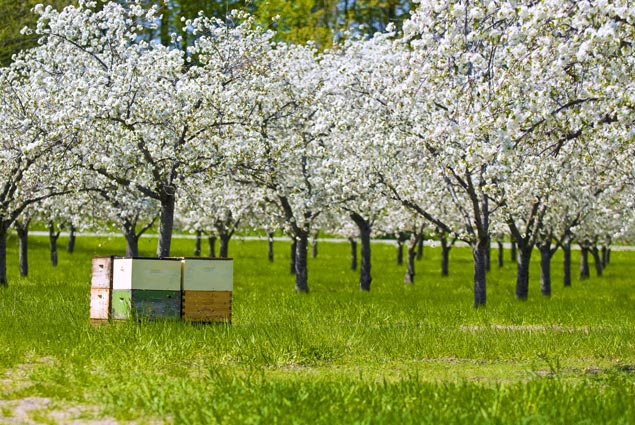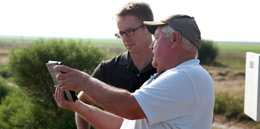 |
Heather Huntington (MPP ’06, PhD ’11), Senior Impact Evaluation Specialist, and Aleta Haflett (MPP ’12), Impact Evaluation Specialist, The Cloudburst Group
Lead impact evaluations of USAID-funded initiatives to strengthen land tenure and resource rights for farmers, foresters, and miners in Burma, Ethiopia, Guinea, Liberia, and Zambia. The goal: to see if stronger land rights accelerate the use of sustainable and climate smart farming, forestry, and mining practices.
Gregory Fogel (MPP/SNRE ’10), Senior Policy Specialist, National Sustainable Agriculture Coalition
Leads conservation, energy, appropriations, and budget work for the National Sustainable Agriculture Coalition, which advocates for federal policies and programs that benefit family farmers and the environment. The goal: increase the diversity and sustainability of the nation’s food systems. “Diversification is good for the environment, good for the farmer’s bottom line, and good for rural communities,” says Greg Fogel, who is now focused on securing funding for natural resource conservation, sustainable agriculture research, food safety training, and an expansion of the ‘farm to school’ grant program that helps schools integrate locally produced foods into their menus.
 |
Shobita Parthasarathy, Associate Professor of Public Policy, Gerald R. Ford School of Public Policy
Exploring how patent systems serve the public interest. “In Europe, there’s a continuing conversation about how patents on plants and animals are limiting biodiversity, reducing food security, increasing consolidation in the agricultural sector, and hurting farmers,” says Shobita Parthasarathy. “But the United States has, for the most part, dismissed those concerns, arguing that the patent system only affects innovation and economic development.” Parthasarathy is writing a book that explains how and why the United States and Europe are producing different approaches to patents and their governance. In doing so, she aims to stimulate conversation about whether we need to remake the patent system to better serve our needs and values.
Mark Rosegrant (MPP ’74, PhD ’78), Director of Environment and Production Technology, International Food Policy Research Institute
Authored Food Security in a World of Natural Resource Scarcity, the outcome of a multi-year research project that assessed the potential impact of agricultural innovations—including no-till farming, drip irrigation, plant spacing, and more—to boost yields of staple crops like wheat, maize, and rice.
 |
Jason Weller (MPP ’99), Chief, U.S. Department of Agriculture Natural Resources Conservation Service
Oversees an agency of more than 11,000 soil, water, and wildlife experts who work hand-in-hand with private landowners—including farmers, ranchers, and foresters—to improve conservation practices while protecting the profitability and sustainability of their operations.
Email [email protected] to share energy and environmental policy stories for our expanded online roundup.
Below is a formatted version of this article from State & Hill, the magazine of the Ford School. View the entire Spring 2015 State & Hill here.
